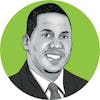 See
more of the story
See
more of the story
I can see Steve Sviggum's future.
At some point on his media tour to double down, apologize and double down again on his "too diverse" remarks about the University of Minnesota, Morris campus' declining enrollment, before he inevitably issues a final apology to salvage his name, he will travel to the school.
There, he'll find some unsuspecting BIPOC student heading to Econ 101 class. Then, he'll put his arm around the student — who won't know who he is — as he looks into a camera and declares, "There is nothing too diverse about this beautiful university."
Post it on The Facebook, baby! Steve Sviggum is back!
I know the script. Hell, I could write these hollow statements.
I'm less concerned with Sviggum's future, however, than I am with who and what he represents.
It's imprudent to discuss Sviggum's racist framing of the Morris campus' enrollment predicament — a brand of racist ideology that's fueled by xenophobia and the false notion that one too many BIPOC folks in the room corrupts the room — as a single act.
That's not how systemic racism works. That's not how institutions work.
That's why his comments made me think about termites. I love to watch nature videos. Been that way since I was a kid. And I'm fascinated by the ability of a termite colony to build massive mounds while also owning the collective power to work together and destroy the foundation of a building.
If there is one termite, there are probably millions nearby.
To the University of Minnesota system: Is Sviggum an outlier or the reason your stated mission on diversity could collapse as more BIPOC students feel unwanted and choose other institutions in the future?
Per the Board of Regents website, its role is clear: "The Board of Regents articulates a vision for the University and works to ensure the University of Minnesota fulfills its mission of education, research, and outreach." If an influential member of that board is willing to spew that nonsense at a public meeting, then the University of Minnesota system cannot assure any prospective BIPOC applicant that they will be supported and seen on its campuses.
Sviggum said those things last week because he felt empowered — not by the "letters" he claimed to have from people who felt "uncomfortable" sending their children to Morris — but by beliefs he'd embraced over the course of his life.
"At 71 years or 72 years old, I say things that I would've never thought when I was 52," he said last week. "But it gives you a [little freedom] to do that."
For decades, Sviggum's life has been defined by his authority and influence in public service roles. But he did not grow comfortable enough to call a campus "too diverse" overnight. No, it's a lifetime of wayward thinking on the value of diversity, and support for those ideas, that's led to his current views.
I want to know if anyone within the University of Minnesota's vast stratosphere congratulated him for his comments last week. Who sent him an "attaboy" text after the meeting? How many people of influence, who are affiliated with the University of Minnesota, agree with him? He is a cultivator of the University of Minnesota's vision. It's fair to ask if BIPOC parents will feel comfortable sending their children to University of Minnesota campuses after what Sviggum said.
Imagine if the manager of a restaurant suggested the establishment had too many BIPOC customers because some of the white customers weren't comfortable. Would you need to see the owner or other staffers to make a decision about where you wanted to eat? No. Because that individual represents everything you believe about that restaurant. And Sviggum represents the University of Minnesota's identity. They are inextricable.
That's why the "too diverse" language is so dangerous for the students at the University of Minnesota, Morris and beyond. It implies that their presence alone is a threat.
It makes them more vulnerable than they already are. And it's not something that another apology can dismiss. The vice chair of the University of Minnesota's Board of Regents just made the system's institutions less safe for its BIPOC students.
When I was at Minnesota State Mankato, a student senate leader organized a campaign to "send you back to Africa." He had signatures. I understood the message: "Your presence makes me uncomfortable."
I didn't care. I still don't today. It's not the role of BIPOC students — or any person of color — to make people feel better about our existence. BIPOC folks don't have to call the Steve Sviggums of the world and try to change them. We don't have time for that and it's not our responsibility.
But it's imperative that we continue to attack the roots of systemic racism in a state that's still known around the world for the murder of George Floyd.
I do not believe Sviggum is alone. That's a man who believed he represented someone or something when he made his comments about diversity on the Morris campus.
And if he remains on the Board of Regents, it will convey to BIPOC students that they will have a better and safer experience outside the University of Minnesota system.
Is that what the leadership of the University of Minnesota wants?
Don't mind me. I'm 39 years old now. I would have never thought to say these things when I was 19.
I'm just asking the question.
Myron Medcalf is a local columnist for the Star Tribune and a national writer and radio host for ESPN. His column typically appears in print on Sundays twice a month and also online.




